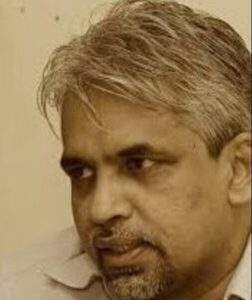Election Commission’s Preparations Amidst Challenges and AI Concerns
The Election Commission of Sri Lanka is grappling with significant challenges in monitoring social media and addressing AI-related issues due to insufficient equipment and manpower. To overcome these limitations, the Commission plans to enhance its collaboration with various organizations.

Election Commissioner General Saman Sri Rathnayake explained to the Sunday Times that, due to the lack of specialized technical resources, the Commission is continuing its partnership with the People’s Action for Free and Fair Elections (PAFFREL). This collaboration has been crucial in the past, particularly through technical support provided by PAFFREL’s previous partnership with Hashtag Generation. For the upcoming elections, the Commission intends to expand this collaboration to include not only Hashtag Generation but also Factum and nine other organizations with the capability to monitor social media and perform fact-checking.
The Sri Lanka Press Institute (SLPI) will also assist in overseeing print and electronic media.
Mr. Rathnayake highlighted that the Commission is engaging with representatives and parent companies of major social media platforms—Google, YouTube, TikTok, and Meta—to seek their support in managing pre-election and post-election issues. These companies have expressed their willingness to assist under specific conditions and criteria.
The rise of artificial intelligence (AI) in the electoral process poses new challenges. AI’s impact on social media is significant, with the potential to alter public opinion and political outcomes. The Commission aims to implement measures to mitigate these effects and ensure the integrity of the election process.
Cash Deposit
The Sri Lankan government has yet to act on the Election Commission’s repeated requests to increase the cash deposit required for presidential candidates. In April, the Cabinet approved a proposal to raise the deposit amounts to Rs. 2.6 million for candidates from recognized political parties and Rs. 3.1 million for independent candidates. Currently, the deposit stands at Rs. 50,000 for party candidates and Rs. 75,000 for independents. Justice Minister Wijeyadasa Rajapakshe noted that the proposal was made to reduce the number of candidates and associated election expenses, but there was insufficient time to implement these changes for the September presidential election. He emphasized that delaying the proposal’s implementation closer to the election could lead to accusations of attempting to influence the outcome unfairly.
At the 2019 presidential election, three leading candidates secured 97.40% of the votes, while 33 other candidates shared just 1.59%. The candidate with the fewest votes received only 976 votes, and 21 candidates garnered fewer than 10,000 votes each.
Concerns about rising printing costs have also been raised by election officials, adding to the overall challenges facing the Commission as it prepares for the upcoming elections.

Professor Tudor Weerasinghe from the University of Colombo’s Media Studies Faculty warned about the significant impact of AI on various aspects of life, including elections. He emphasized that AI can manipulate public opinion and potentially distort election results. International efforts are underway to regulate AI’s use in elections, including agreements by major tech companies to manage AI’s influence and ensure transparency in its application during electoral processes. The European Union has also expressed concerns about AI’s potential to disrupt political democracy through misinformation and mal-information.







